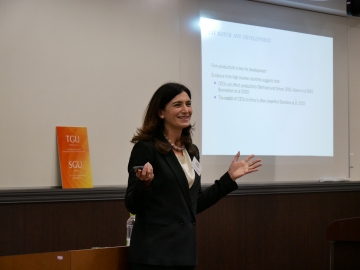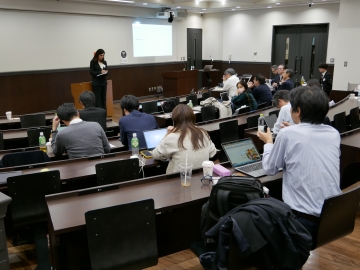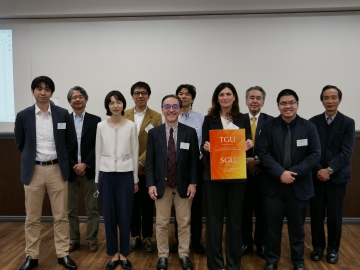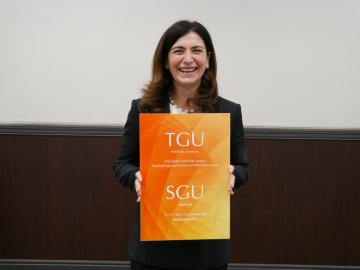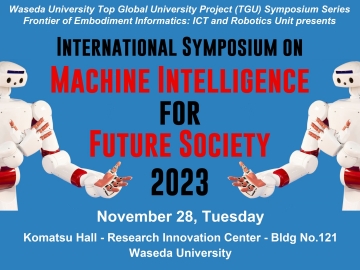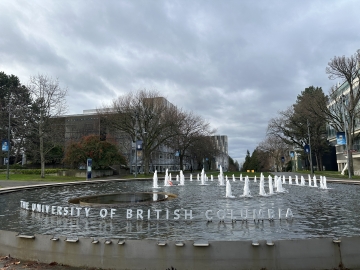The Center for Positive/Empirical Analysis of Political Economy and the Institute for Empirical Research in Organizational Economics jointly sponsored an international conference with the Research Institute of Economy, Trade and Industry (RIETI) on November 22, 2023, and invited Professor Raffaela Sadun of Harvard Business School as the keynote speaker. The conference was held at Waseda University’s Nihonbashi Campus. A total of 37 participants (including 14 graduate students) gathered to engage in lively discussion of the empirical research on the theme of top managers and top management teams. We’d like to share a report of the event.
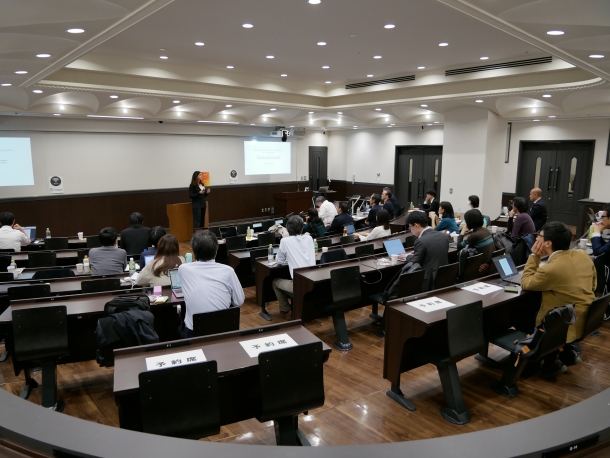
Kohei Takahashi, Research Associate of the Faculty of Political Science and Economics & Ph.D. student of the Graduate School of Economics / Hideo Owan, Professor of the Faculty of Political Science and Economics
In the conference, four researchers presented their research. The first presenter, Kongphop Wongkaew (Waseda University) reported on his research titled “CEO age, firm exit, and zombification amidst the COVID-19 pandemic.” His research explores whether the pandemic increased zombification (a situation in which a company survives by receiving financial support even though its operations are virtually bankrupt), firm exits, and CEO changes. Although the number of zombie firms increased, the impact of the COVID-19 pandemic was dependent on CEO age, demonstrating that firms run by younger CEOs increased long-term debt and firms run by older CEOs accelerated exits and CEO turnover. There was great interest in the differences between urban and rural areas.
Junichi Yamanoi (Assistant Professor, Waseda University) gave the next presentation, titled “Heterogeneity of Risk and Time Preferences among Founders, Successors, and Non-CEOs.” He reported how firm founders differ in time preferences and risk preferences compared to their successors and employees, and the extent to which these characteristics can explain corporate behavior. Based on a survey of about 1,800 CEOs and about 500 non-CEO individuals, the analysis found that founder CEOs are more risk tolerant and more time impatient than CEOs who inherited the business and employees in general, but that this alone does not explain the differences between founders and management successors. The audience showed great interest in the method of using finite mixture models.
The third presenter, Yoko Asuyama (JETRO), reported the results of a study using personnel data from a Japanese service company on the impact of differences in middle managers’ skills on subordinates’ performance and retention and on their own evaluation and promotion. By clarifying the conditions of relative optimality between a promotion system in which promotion is determined by performance as a line manager and another in which promotion is determined by competency evaluation. Peter Principle (people are promoted until they become incompetent), which is the result of inefficient work allocation due to performance-based promotion, can be avoided under certain conditions. This was demonstrated with a real example using personnel data. There was a lively discussion on improving the method of proving causality and other issues.
The fourth presenter, Katsuyuki Kubo (Professor, Waseda University), reported the results of an examination of the impact of CEO management skills on corporate performance. Using profile information on TSE First Section listed companies to measure management experience prior to assuming office, he showed that the change from CEOs with no management experience at other firms or subsidiaries to CEOs with such experience has a positive impact on corporate performance. People felt surprised that more than 60% of CEOs had no management experience at subsidiaries or other companies before assuming office, and that no improvement trend was observed.
Professor Sadun actively provided feedback on all of the reports, especially asking about assumptions and background information and making numerous suggestions for future analysis, which deeply contributed to the understanding of the content by the audience as well as the presenters.
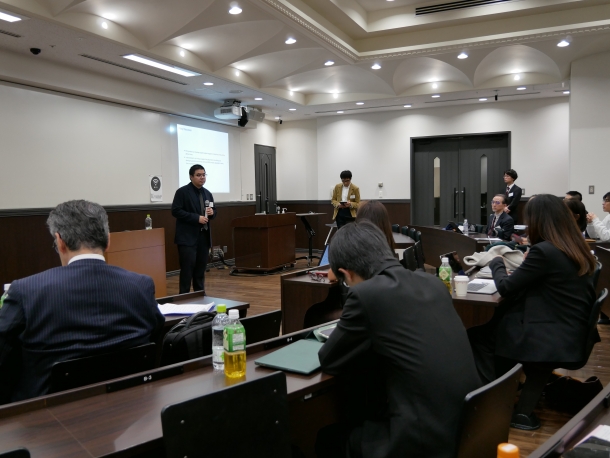
In her final keynote address, Professor Sadun presented the results of her analysis of the impact on productivity of the degree of fit between firm characteristics and CEO behavior types, using data on CEO time use collected from 4,500 manufacturing firms in 42 countries. Building on her own previous research (Bandiera, Prat, Hansen, and Sadun 2020), classifying CEOs into “manager types” who focus on task management and “leader types” who create organizational direction. Using training data from seven industrialized countries, which comes mainly detailed data used in the previous study, her team constructed a predictive model of which CEO characteristics are associated with leader-type CEOs. The predictive model is then used to ascertain the degree of match between CEOs and companies by checking whether CEOs of the leader type (manager type) are actually appointed to companies that require CEOs of the leader type (manager type). The results show that the mismatch between CEO type and firm is negatively correlated with a country’s GDP. This study is impressive in that it focuses on the mismatch between the CEO type and the company, rather than discussing whether the leader type or the manager type is better. We understood that in order to improve productivity, it is important to understand the characteristics of a company’s business and the governance that enables it to attract the right people to match those characteristics.
- Sadun先生ご講演
- 質疑応答
This conference provided a meaningful opportunity for intellectual exchange by bringing together researchers who are studying managers and management teams. It was also a valuable opportunity for graduate students to experience firsthand the latest research and trends from leading researchers.
- 講演者全員
- Sadun先生
